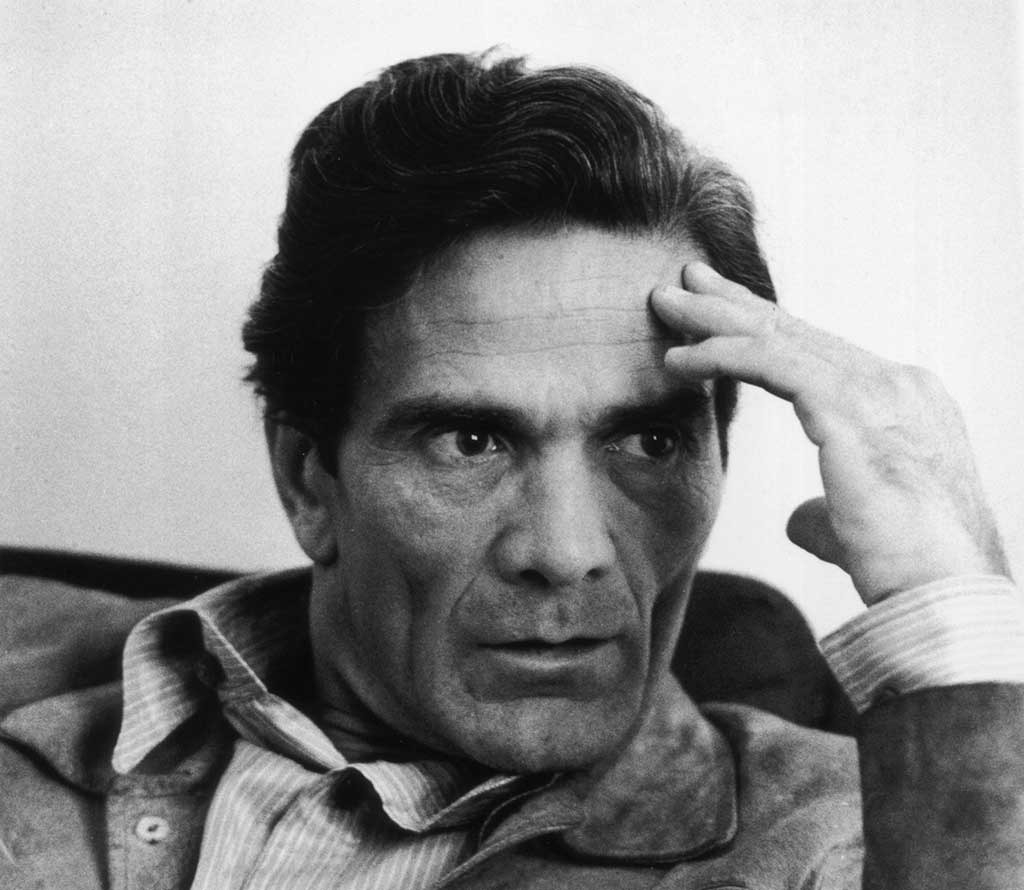
Pier Paolo Pasolini, an Italian filmmaker, poet, writer, and intellectual, remains one of the most enigmatic and influential figures in 20th-century culture. Revered for his radical views and bold artistic expression, Pasolini’s works delve into themes of religion, sexuality, politics, and the human condition. His life was as controversial and layered as his films, blending artistry with activism in ways that continue to resonate.
Early Life and Education
Pier Paolo Pasolini was born on March 5, 1922, in Bologna, Italy, to an officer father and a schoolteacher mother. His childhood was marked by instability due to his father’s military career and financial struggles. Pasolini’s mother, Susanna, played a central role in his life, providing emotional stability and encouragement for his intellectual pursuits.
Pasolini showed an early interest in literature, art, and philosophy, excelling in his studies. He attended the University of Bologna, where he studied art history and philology, fields that deeply influenced his later work. During World War II, his academic journey was interrupted, but it was also during this time that he began writing poetry inspired by his love for the Italian countryside and the plight of the working class.
Literary Beginnings
Pasolini’s early poetry, written in the Friulian dialect, captured the lives of rural Italians and challenged traditional poetic norms. His first collection, Poesie a Casarsa (1942), earned him recognition as a unique literary voice. However, his leftist political views and open homosexuality drew criticism and hostility from conservative Italian society.
In the postwar years, Pasolini moved to Rome, a city that would become a muse for his creative endeavors. There, he immersed himself in the lives of the urban poor, an experience that deeply informed his writing and later, his filmmaking.
The Transition to Cinema
Pasolini’s move into cinema was a natural progression of his artistic journey. His interest in visual storytelling was intertwined with his desire to explore society’s marginalized communities and challenge established norms.
His directorial debut, Accattone (1961), set the tone for his cinematic career. The film portrays the life of a Roman pimp and his descent into poverty and existential despair. Shot with non-professional actors and stark realism, Accattone marked Pasolini as a pioneer of neorealist cinema, though his work often diverged from traditional neorealism by incorporating poetic and allegorical elements.
Key Themes in Pasolini’s Work
Pasolini’s films are characterized by their unflinching exploration of taboo subjects, blending gritty realism with lyrical beauty. Recurring themes include:
- Religion and Spirituality: Pasolini, though critical of institutional religion, was fascinated by spiritual questions. His The Gospel According to St. Matthew (1964) is a reverent yet unconventional retelling of the life of Jesus, filmed with stark simplicity and non-professional actors.
- Sexuality and Desire: His works often explore human sexuality in ways that challenge societal norms. Films like Teorema (1968) delve into the transformative power of desire and its impact on individuals and families.
- Critique of Consumerism: Pasolini was a vocal critic of modern capitalism and its dehumanizing effects. In Medea (1969) and The Decameron (1971), he contrasts traditional, rural values with the alienation of industrialized society.
- Myth and History: Pasolini’s fascination with classical myths and history is evident in films like Oedipus Rex (1967) and The Canterbury Tales (1972). These works reimagine ancient stories to comment on contemporary issues.
Major Films in Pasolini’s Oeuvre
- Accattone (1961): A raw depiction of life in Rome’s slums, this debut established Pasolini as a significant new voice in Italian cinema.
- Mamma Roma (1962): Starring Anna Magnani, the film follows a prostitute’s attempt to build a better life for her son, only to face tragic consequences.
- The Gospel According to St. Matthew (1964): Universally acclaimed, this film’s stark portrayal of Jesus Christ’s life earned Pasolini awards and cemented his reputation as an auteur.
- Teorema (1968): A mysterious visitor disrupts the lives of an upper-class family, exposing their emotional and spiritual emptiness.
- Salo, or the 120 Days of Sodom (1975): Pasolini’s final film is an unflinching and controversial adaptation of the Marquis de Sade’s work, critiquing fascism, consumerism, and power.
Political Activism and Personal Life
Pasolini’s political beliefs were integral to his work and identity. He was an outspoken Marxist, critical of both the Italian government and the Communist Party’s conformity. His critiques of capitalism, religion, and modernity often placed him at odds with various factions, earning him both admiration and vilification.
Openly gay in a time when homosexuality was criminalized, Pasolini faced legal troubles and societal condemnation. However, his refusal to hide his identity made him a trailblazer for LGBTQ+ visibility, even as he endured personal and professional risks.
Death and Legacy
On November 2, 1975, Pasolini was brutally murdered in Ostia, near Rome, under mysterious circumstances. His death shocked the world, and debates about the motives and perpetrators continue to this day. Some view his murder as a politically motivated act, reflecting the contentious nature of his life and work.
Despite his untimely death, Pasolini’s influence remains profound. His films, poetry, and writings continue to inspire artists, filmmakers, and thinkers worldwide. Pasolini’s work challenges audiences to confront uncomfortable truths about society, power, and the human condition.
Conclusion
Pier Paolo Pasolini was a multifaceted artist whose work transcends conventional boundaries. Whether through poetry, prose, or cinema, he sought to give voice to the marginalized and interrogate the structures of power. His legacy endures as a testament to the transformative power of art and the enduring relevance of his fearless exploration of humanity’s complexities.



